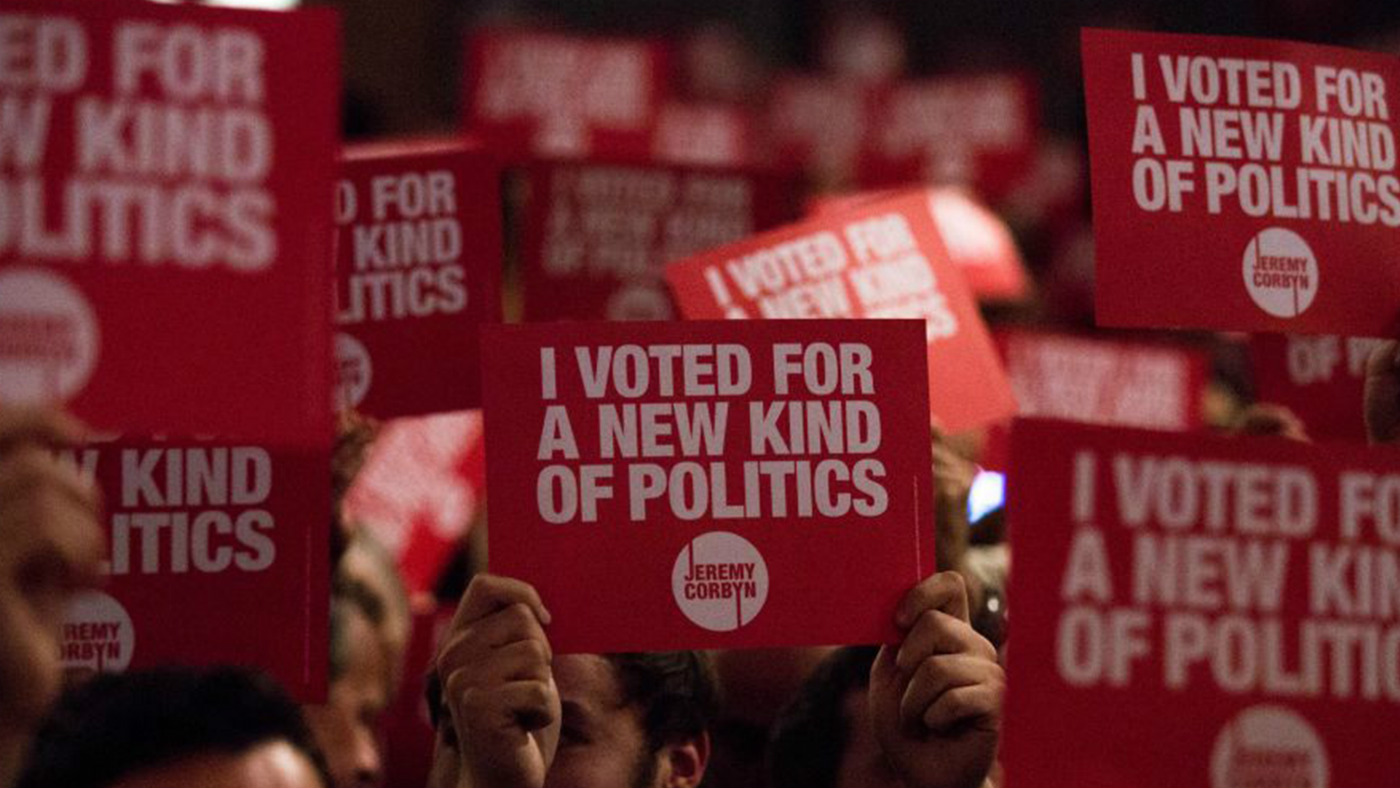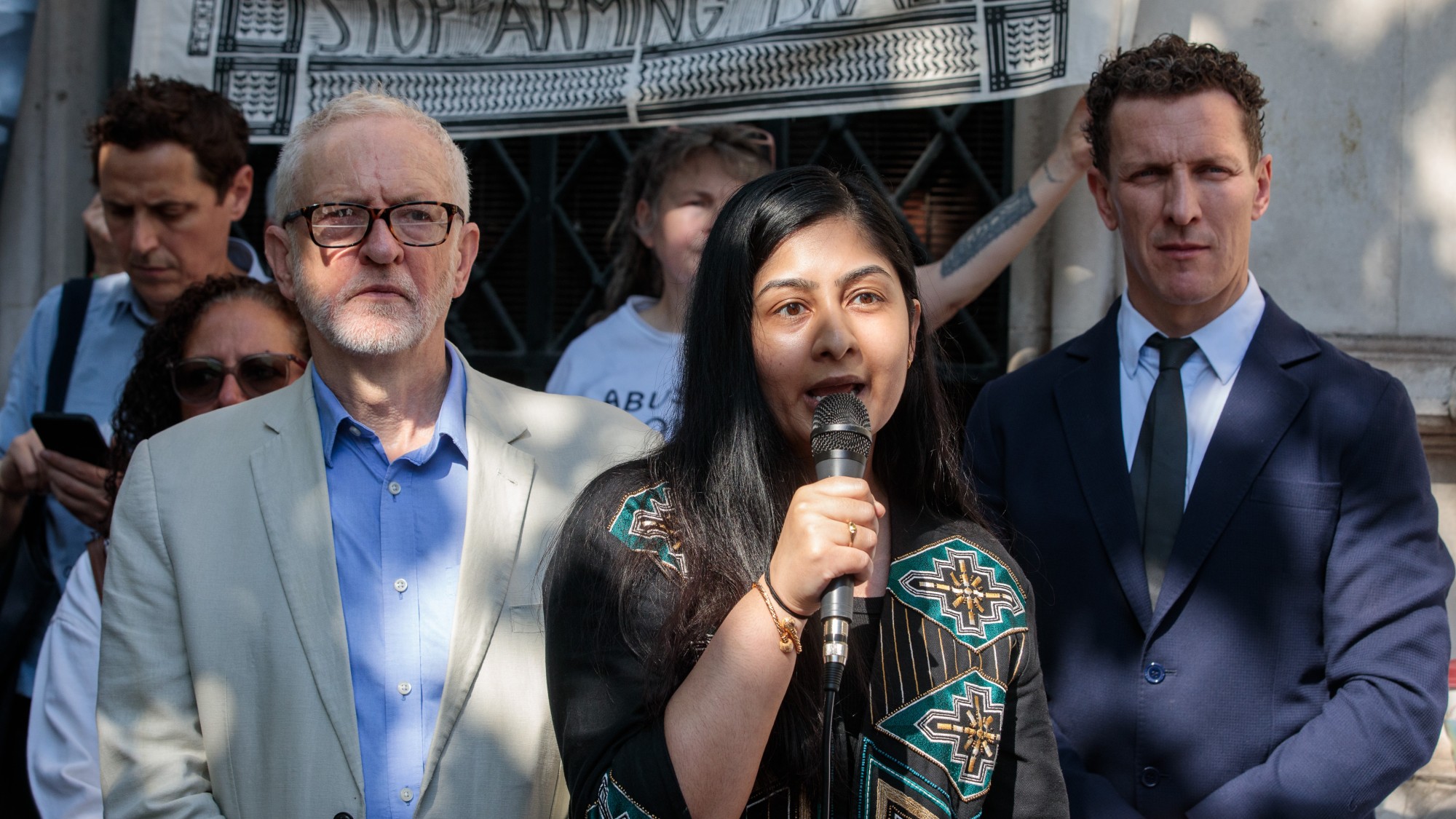How Momentum helped sway the general election
Military-like planning and the use of social media helped the group overcome its critics to triumph on 8 June

A free daily email with the biggest news stories of the day – and the best features from TheWeek.com
You are now subscribed
Your newsletter sign-up was successful
Grassroots campaign group Momentum has been widely credited with helping Jeremy Corbyn upset the odds at this year's general election.
Labour's Jared O'Mara, who beat former deputy prime minister Nick Clegg to become MP for Sheffield Hallam, certainly felt the group played an active part. "The contribution of Momentum members in South Yorkshire and beyond was exemplary," he said. "It was a blessing to have them on board campaigning to get me elected."
Set up in 2015 by former Tony Benn supporter Jon Lansman, Momentum has been intrinsically linked to Corbyn's rise, helping him win both leadership campaigns.
The Week
Escape your echo chamber. Get the facts behind the news, plus analysis from multiple perspectives.

Sign up for The Week's Free Newsletters
From our morning news briefing to a weekly Good News Newsletter, get the best of The Week delivered directly to your inbox.
From our morning news briefing to a weekly Good News Newsletter, get the best of The Week delivered directly to your inbox.
However, many centrist Labour MPs and figures have criticised the group. Jon Cryer, chairman of the Parliamentary Labour Party, said Momentum looked like "party within a party" while deputy leader Tom Watson warned its alliance with super-union Unite could "destroy" Labour because of hard-left "entryism".
But, with Labour winning 33 extra seats and their vote share increasing to 40 per cent in the general election, "the group may been seen in a different light after the election", says The International Business Times.
So how did Momentum go from zero to hero in such a short space of time?
Strategic planning with My Nearest Marginal
A free daily email with the biggest news stories of the day – and the best features from TheWeek.com
The My Nearest Marginal website was the brainchild of Momentum and "one of the most useful weapons in [its] tech arsenal", said The Times.
It allowed activists, particularly first-time canvassers, to easily find battleground seats and campaign more effectively for Labour and was used by more than 100,000 people.
"We reached out way beyond our own bubble – we only have 24,000 members," said Adam Klug, one of the central Momentum team.
Momentum held "mass campaign weekends in critical seats such as Croydon Central, Derby North, Sheffield Hallam, Battersea, Leeds North West, and Brighton Kemptown", the New Statesman reports, and in all of the targeted seats, "Conservative majorities collapsed in the face of energy and enthusiasm channelled into a movement".
The professional nature of the movement was also a big positive. "It was like clockwork," one volunteer told The Guardian, which says the activist had simply gone "to the front room of someone who knew she was coming" and they "told her the exact door numbers to knock on and what time to knock.
"Several sources said so many volunteers flooded the constituency that some had to be sent elsewhere."
Following in Bernie Sanders's footsteps
Momentum was also boosted by advice from key figures from Bernie Sanders's US presidential bid.
Grayson Lookner, Jeremy Parkin, Kim McMurray and Erika Uyterhoeven were brought in "to give advice in activist training sessions, focusing on sending activists to the right places and ensuring people turned out", says the Guardian.
One such move originating from the Sanders campaign was the switch to texting of supporters rather than emailing during the campaign, with the group boasting that almost 100 per cent of the messages were opened and that they had a reply rate of 40 per cent, a marked improvement on emails.
In addition, the group also turned Momentum on to the use of WhatsApp, through which they contacted 400,000 people on election day, according to the International Business Times.
Targeting social media
Perhaps the group's biggest effect was online, where Momentum appeared to win the battle on social media by exploiting the distinction in tactics between the two main parties.
"The Conservative focus seemed to be sharp, paid-for attack ads. Labour's presence was much more organic, and perhaps more effective with it," says the BBC.
"What was clear online was a distinct surge in pro-Corbyn enthusiasm."
Momentum also produced a number of viral videos that saw huge levels of traction. One, called: "Daddy, why do you hate me?" and featuring an imaginary conversation between a Theresa May supporter and his daughter in 2030, has been viewed more than 7.6 million times on social media, with the group claiming it reached roughly 30 per cent of all UK Facebook users.
Momentum's focus away from traditional channels was reflected in lists of the most-shared stories online.
Analysis by Buzzfeed showed that in the run-up to the election, social media was dominated by material sympathetic to Labour and hostile towards Theresa May's Conservatives.
"Of the top 20 most shared Labour-related stories, only one, Diane Abbott's disastrous interview on LBC regarding police funding, can be considered negative," says the website.
By contrast, "of the top 20 articles relating directly to Theresa May and her party, 18 were explicitly negative".
It also harnessed new left-wing online media entities, such as The Canary, Evolve Politics and Another Angry Voice, heavily promoting articles with headlines such as: "How many of Jeremy Corbyn's policies do you actually disagree with?" and: "NHS workers have spoken. The election is the only way to save the health service".
-
 Local elections 2026: where are they and who is expected to win?
Local elections 2026: where are they and who is expected to win?The Explainer Labour is braced for heavy losses and U-turn on postponing some council elections hasn’t helped the party’s prospects
-
 6 of the world’s most accessible destinations
6 of the world’s most accessible destinationsThe Week Recommends Experience all of Berlin, Singapore and Sydney
-
 How the FCC’s ‘equal time’ rule works
How the FCC’s ‘equal time’ rule worksIn the Spotlight The law is at the heart of the Colbert-CBS conflict
-
 Local elections 2026: where are they and who is expected to win?
Local elections 2026: where are they and who is expected to win?The Explainer Labour is braced for heavy losses and U-turn on postponing some council elections hasn’t helped the party’s prospects
-
 How corrupt is the UK?
How corrupt is the UK?The Explainer Decline in standards ‘risks becoming a defining feature of our political culture’ as Britain falls to lowest ever score on global index
-
 The high street: Britain’s next political battleground?
The high street: Britain’s next political battleground?In the Spotlight Mass closure of shops and influx of organised crime are fuelling voter anger, and offer an opening for Reform UK
-
 Biggest political break-ups and make-ups of 2025
Biggest political break-ups and make-ups of 2025The Explainer From Trump and Musk to the UK and the EU, Christmas wouldn’t be Christmas without a round-up of the year’s relationship drama
-
 Is a Reform-Tory pact becoming more likely?
Is a Reform-Tory pact becoming more likely?Today’s Big Question Nigel Farage’s party is ahead in the polls but still falls well short of a Commons majority, while Conservatives are still losing MPs to Reform
-
 The launch of Your Party: how it could work
The launch of Your Party: how it could workThe Explainer Despite landmark decisions made over the party’s makeup at their first conference, core frustrations are ‘likely to only intensify in the near-future’
-
 Taking the low road: why the SNP is still standing strong
Taking the low road: why the SNP is still standing strongTalking Point Party is on track for a fifth consecutive victory in May’s Holyrood election, despite controversies and plummeting support
-
 Your Party: a Pythonesque shambles
Your Party: a Pythonesque shamblesTalking Point Comical disagreements within Jeremy Corbyn and Zarah Sultana's group highlight their precarious position